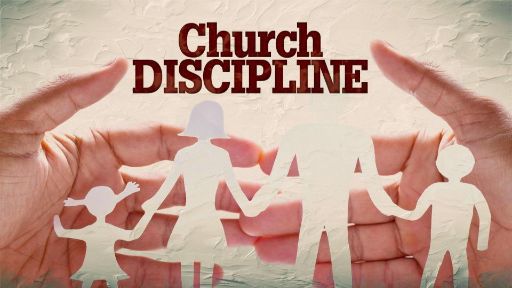-
When A Had Needs Help
Contributed by Greg Tabor on Nov 28, 2017 (message contributor)
Summary: This is a sermon that gives an understanding of how believers should respond to someone who has fallen into sin within their church.
“When a Had needs Help”
1/23/05
a.m. service
Ridgeway Assembly of God
Pastor Greg
Introduction
Read: Galatians 6:1-5
Expound on the following phrase:
“Brothers, if someone is caught in a sin” NIV
“Dear brothers and sisters, if another Christian is overcome by some sin” NLT
“Brethren, even if anyone is caught in any trespass” NASB
“Brethren, if a man be overtaken in a fault” KJV
There are two ways we can possibly take this verse:
1.Other believers catch someone in the act of sin.
2.A believer has been overcome by a sin.
The person in our text today either was caught in the act of sin, or has been overtaken by a particular sin. Read p. 201-203 of Beth Moore’s book “When Godly People Do Ungodly Things.” Permit me now to use some of her terminology in my sermon this morning.
Can you today relate to Had?
Perhaps today you are wanting to reach out to a Had?
Have you ever felt you were glad you weren’t as bad Had?
This sermon is for you!
I. What do you do with Had?
Some people realize they blew it big time and they don’t need to be confronted, they just need to be pulled up out of the pit and taken through a restoration process. Others are a little bit more stubborn. They are persistent in their sins thinking they’ll never get caught or they can cover for it. What do we do with the stubborn ones?
1.Let them know they’ve been Had.
Jesus gave us instructions on confronting a person who has sinned (see Matthew 18:15-17). The first way is to go in private. This is always the best way. I think you’d agree you’d rather be confronted with your sin in private than on a billboard, right?
If that doesn’t work, then you take others with you. And if the person doesn’t listen to you, then you take it before the whole church.
Obviously there are times that sin has to be dealt with in a public manner because it is a public matter. That is certainly true when several people come with an accusation concerning a church leader (see 1 Timothy 5:19-20). Church leaders are public figures who are held more accountable for their actions. When a sin becomes public enough that dealing with it solely on a private scale won’t do, you have no choice but to deal with it in an appropriate manner publicly. If not, the people who brought the accusations, and others who know about them, will feel you are just sweeping things under the carpet.
But more often than naught, a private confrontation is the way to start and can be the ending point. Do you know someone in the Body that is living in sin? My suggestion is that if you really love them, you’ll go to them privately and confront them with your knowledge of their sin and their need to change. What a friend you would be if you helped them take care of this thing in private, before it became something that required public discipline.
2.What is the Goal of Letting Someone Know They’ve Been Had?
What do we hope to achieve by confronting a person with their sin?
In our primary example of church discipline in Matthew 18, the goal is that of winning over your brother. Paul explained to the Thessalonians (2 Thess. 3:14-15) that they were not to associate with a brother that didn’t heed the instructions of the letter Paul sent. The goal was that this person would be ashamed as the result of his been ostracized by the Body, and therefore repent of his actions. And in 1 Corinthians 5, Paul blasted the church for putting up with an unrepentant man in their congregation who was living in blatant immorality. Paul’s instructed that he be excommunicated. His purpose in this was for the man’s salvation. In fact, in 2 Corinthians 2:6-8 (these verses may be talking about the same man) Paul tells the congregation that the punishment has been sufficient and the man needs to be brought back into fellowship.
One main goal of church discipline is the restoration of the sinner.
II. Restoring Had
1.Had’s role in His/Her Own Restoration
Whether a person screams out from the pit for help or reluctantly concedes after being humiliated before the congregation, the reaction God is looking for in the end is godly sorrow. It is godly sorrow that brings repentance. A great example of this is found in Paul’s chastising of the Corinthian church. Listen to his words:
Read: 2 Cor 7:10-11
A whole lot of things come to the surface when we have true godly sorrow. They wanted things right. The godly sorrow had produced repentance. True repentance must be the reaction of everyone confronted with their sin. It is the necessary link to restoration. In fact, without it there can be no restoration. We can’t rationalize our sins away folks. If you want help you must first repent.

 Sermon Central
Sermon Central



